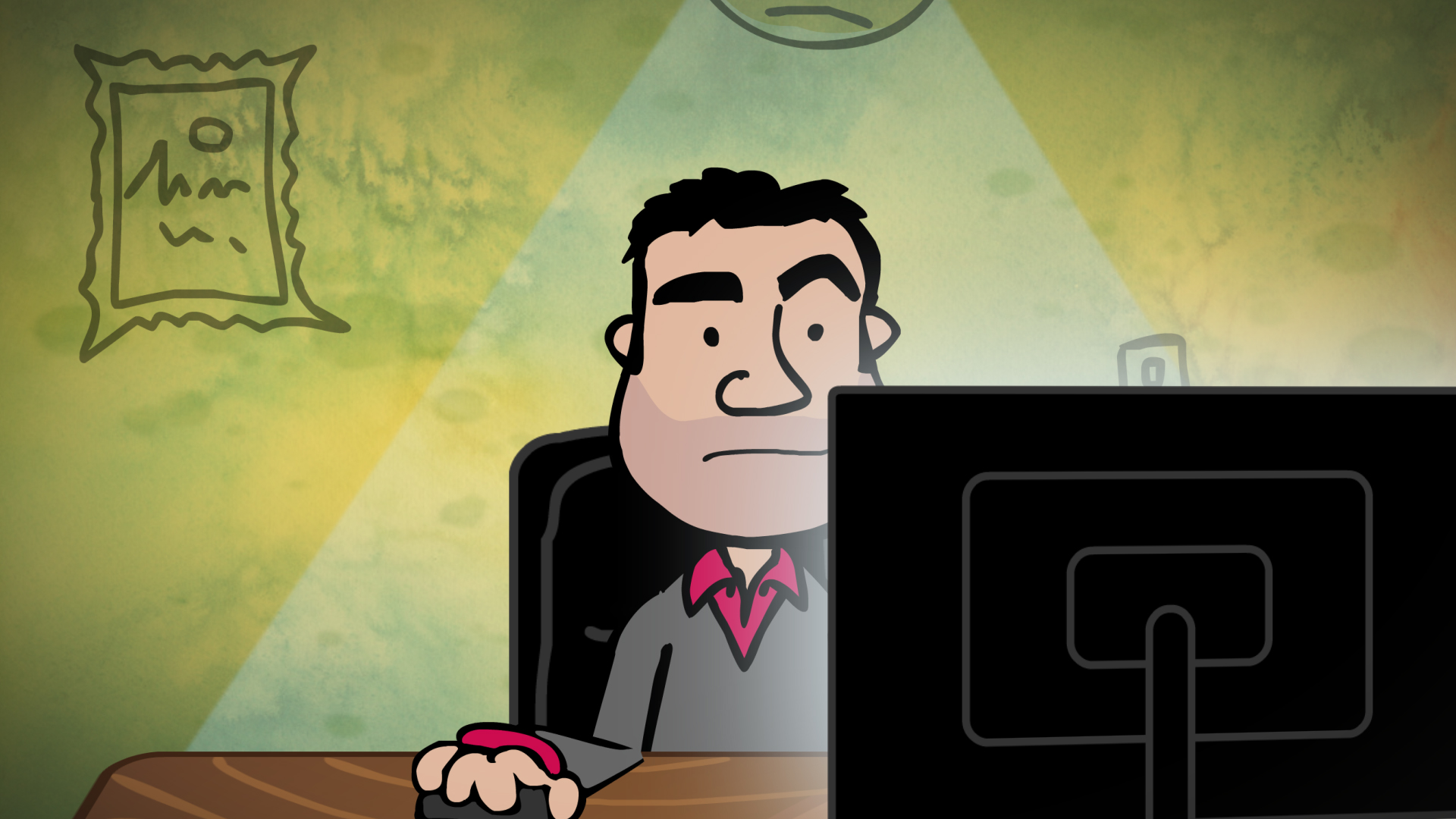I’ve worked at home for close to a decade. When I first made plans to work from a home office, I imagined that I’d somehow not have the constraints of deadlines, there’d be no bosses to worry about or awkward people to deal with. I thought that I’d pick up my laptop and regularly spend hours animating effortlessly in coffee shops while sipping an espresso with a big arrogant grin across my face. It’s rarely like that. Over the years I’ve picked up quite a few good habits and a handful of bad ones too…so here’s a list of them. Who knows, you might find them useful.
- Organisation. Use a calendar and stick to it. I use Google Calendar. I plan out each portion of the day and try my hardest to stick to it to the half hour. This might seem like it strips away the freedom that working at home should afford but it’s the only way to get finished at a reasonable time. If you have the freedom to not bother until the last minute…you’ll end up staring at a screen, reading rubbish on Twitter or finding five million other things to do. This kind of approach leads to over time and ends with ridiculously late finishing times. So, basically, if you have 16 hours to do something that should only take 1 hour, it’ll be done last and little else will precede it. Be strict.
- Battling creative block. You can’t force creativity…and when you work in a creative industry this can be a huge problem. If you’re not in the right mood when you start work, the creative juices won’t flow and you end up spending hours and hours to complete something that should have taken a half hour. There’s a few solutions. One that works for me is to get up and leave the office. If you need to think about a problem or come up with an idea, go for a walk. Go grab a take out coffee or a bite to eat….but focus on the task while you do. A change of environment often does the trick. It might seem like you’re wasting time that should be spent in the office but a 20 minute walk is better than 2 hours spent staring at a screen.
- Food. This is a big one. Personally, I snack when I get stressed and unfortunately, not on healthy foods. It’s an obvious statement to make but eating healthier food results in more balanced energy levels and renders you more alert. The problem is that you’re working so close to your own kitchen. At a workplace, you’re often limited as to what you can get and when you can eat it. At home, you have a kitchen full of goodies and the freedom to wander out to the shops for more. I find that a great tip is to have fruit in the office.
- Drink. Another big one. I LOVE coffee. In fact, I’m often described as a ‘coffee snob‘. I sometimes go through about 5 or 6 coffees in a shift and I’m not talking about regular strength coffee. I like strong coffee. The problem is that it makes you feel weary, even sleepy when you drink too much. That first coffee of the day is a great ‘pick-me-up’ but too many have the opposite effect. Water and lots of it is the answer. Of course, you probably already know that – as do I. However, I’m drinking my third cup of the day as I type this and it’s only 10AM. Keep a large tankard or jug of ice water on your desk.
- Comfort. You don’t want to be too comfortable. Sitting on an office sofa isn’t the best way to stay awake and in the mood for work. However, you do need a good desk chair. You’ll probably end up sitting in your chair for about 50 hours a week which means buying a cheap one may end up causing you back problems.
- Physical activity. Before you start work, when you have a break and after you finish are all times that you should try to fit in some kind of walk/bike ride/workout or something to counteract all the sitting still that working at home forces us to do. I’ve found that if you work out or run before a shift, it’s usually followed by a very productive day.
- Take breaks! You need to take regular breaks or you will burn out. I used to work for up to 24 hours without breaks (the longest shift I’ve done was over 3 days straight without sleep!). What happened was that instead of being 100% productive for that 24 hour period, I was getting less and less productive to the point that it hurt the progression of the project to not sleep and take regular breaks. It wasn’t that I’d slow down to the point of stopping or going too slow, it was that I’d begin to make silly mistakes. You must take regular breaks and get plenty of sleep. Although you might believe otherwise in the beginning, it’s non-negotiable.
- Misc. tip. At the end of each day, write down 2 or 3 things you know that you have to complete the next day. Then, make sure that no matter what comes along, you complete at least those few things. It helps prevent important tasks being bumped from day to day or week to week.
The above is by no means a comprehensive list to guarantee success in your home office. It’s just a few random ramblings from a professional hermit.





